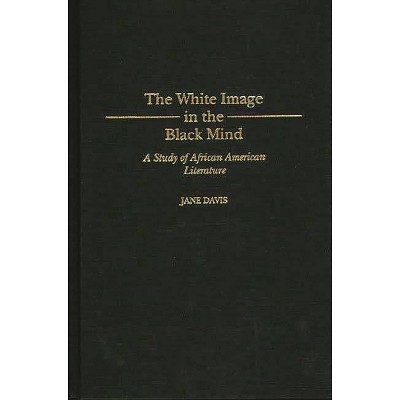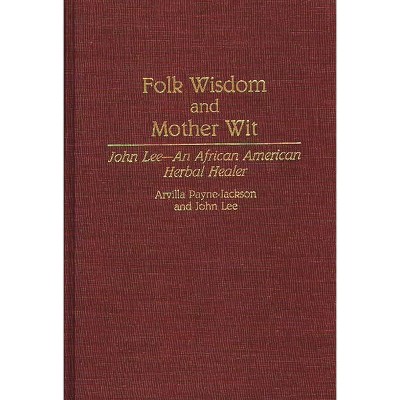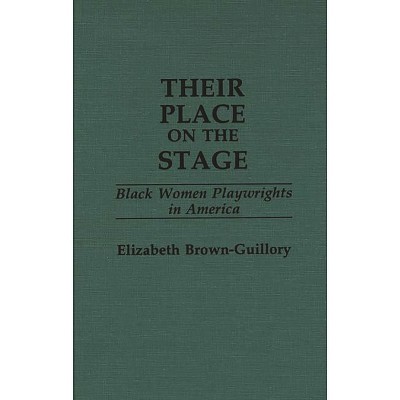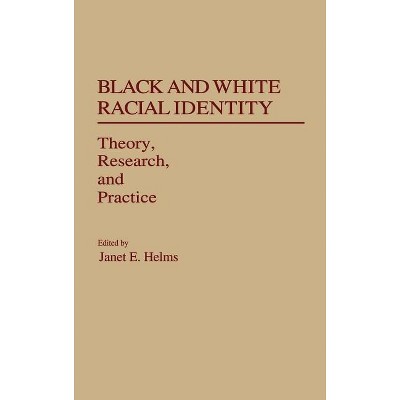Sponsored

From a Caste to a Minority - (Contributions in Afro-American and African Studies: Contempo) by Vernon J Williams (Hardcover)
In Stock
Sponsored
About this item
Highlights
- From a Caste to a Minority explores the complex and changing attitudes held toward blacks by the nation's leading sociologists from 1896 to the end of World War II.
- About the Author: VERNON J. WILLIAMS, JR., is Professor of History and African/Afro-American Studies at Rhode Island College.
- 213 Pages
- Biography + Autobiography, Cultural, Ethnic & Regional
- Series Name: Contributions in Afro-American and African Studies: Contempo
Description
About the Book
From a Caste to a Minority explores the complex and changing attitudes held toward blacks by the nation's leading sociologists from 1896 to the end of World War II. It examines how and why sociology transformed itself from a discipline that rationalized caste-like arrangements in the United States to one that actively advocated and supported the full assimilation of Afro-Americans into the American mainstream. The study suggests that the ascendency of assimilationist theory in post-World War II sociology represents the triumph of ideals of black progress and assimilation proposed in American sociological theory since 1896. Despite a capitulation to the forces of racism and reaction before 1911, sociologists eventually developed their discipline into one of the most forward-looking of all the social sciences.
Presented in a highly readable, narrative format, the book demonstrates the impact of black sociological thought and discusses the role played by amateur sociology in a discipline increasingly conscious of its professional standing. Changing attitudes toward Afro-Americans against a backdrop of black migration to the North are also explored, thereby linking intellectual and social history. This extensively researched study presents the social scientific discussion of Afro-Americans and race relations from 1896 to 1945 in greater depth than any previous work. It will be a valuable asset to students and scholars of Afro-American history as well as to those interested in the development of the social sciences, and in American intellectual history after 1865.
Book Synopsis
From a Caste to a Minority explores the complex and changing attitudes held toward blacks by the nation's leading sociologists from 1896 to the end of World War II. It examines how and why sociology transformed itself from a discipline that rationalized caste-like arrangements in the United States to one that actively advocated and supported the full assimilation of Afro-Americans into the American mainstream. The study suggests that the ascendency of assimilationist theory in post-World War II sociology represents the triumph of ideals of black progress and assimilation proposed in American sociological theory since 1896. Despite a capitulation to the forces of racism and reaction before 1911, sociologists eventually developed their discipline into one of the most forward-looking of all the social sciences.
Presented in a highly readable, narrative format, the book demonstrates the impact of black sociological thought and discusses the role played by amateur sociology in a discipline increasingly conscious of its professional standing. Changing attitudes toward Afro-Americans against a backdrop of black migration to the North are also explored, thereby linking intellectual and social history. This extensively researched study presents the social scientific discussion of Afro-Americans and race relations from 1896 to 1945 in greater depth than any previous work. It will be a valuable asset to students and scholars of Afro-American history as well as to those interested in the development of the social sciences, and in American intellectual history after 1865.Review Quotes
?A history of the conceptualization of the ideas of black progress' and assimilation' in American sociology. Methodologically, William's focus is mainly on the published writings of prominent American sociologists from 1896 to 1945, although much attention is correctly given to the influential writing of Franz Boas and some of his students. Neither an intellectual history concerned with the social origin of ideas, nor a history of the intellectual discipline of sociology, the book is singularly centered on the changes in the expressed ideas of practicing sociologists (occasionally placed in a broader social context). The book would provide an adequate introduction for the beginning student into the development of ideas of racism, prejudice, assimilation, and the theory of race relations.?-Choice
?This book is a history of the transition in American sociological thinking from a genetic explanation of racial differences to social structural and attitudinal explanations. It is comprehensive in reviewing the position of virtualy all of the prominent sociologists in the half century covered. A whole chapter is appropriately devoted to the exception of Franz Boas. The author points out that black scholars such as W.E.B. DuBois and E. Franklin Frazier based their opposition to the genetic argument on solid scientifically supported evidence. Their opposition was not simply because they were black.?-SAGE Race Relations Abstracts
"This book is a history of the transition in American sociological thinking from a genetic explanation of racial differences to social structural and attitudinal explanations. It is comprehensive in reviewing the position of virtualy all of the prominent sociologists in the half century covered. A whole chapter is appropriately devoted to the exception of Franz Boas. The author points out that black scholars such as W.E.B. DuBois and E. Franklin Frazier based their opposition to the genetic argument on solid scientifically supported evidence. Their opposition was not simply because they were black."-SAGE Race Relations Abstracts
"A history of the conceptualization of the ideas of black progress' and assimilation' in American sociology. Methodologically, William's focus is mainly on the published writings of prominent American sociologists from 1896 to 1945, although much attention is correctly given to the influential writing of Franz Boas and some of his students. Neither an intellectual history concerned with the social origin of ideas, nor a history of the intellectual discipline of sociology, the book is singularly centered on the changes in the expressed ideas of practicing sociologists (occasionally placed in a broader social context). The book would provide an adequate introduction for the beginning student into the development of ideas of racism, prejudice, assimilation, and the theory of race relations."-Choice
About the Author
VERNON J. WILLIAMS, JR., is Professor of History and African/Afro-American Studies at Rhode Island College.
















